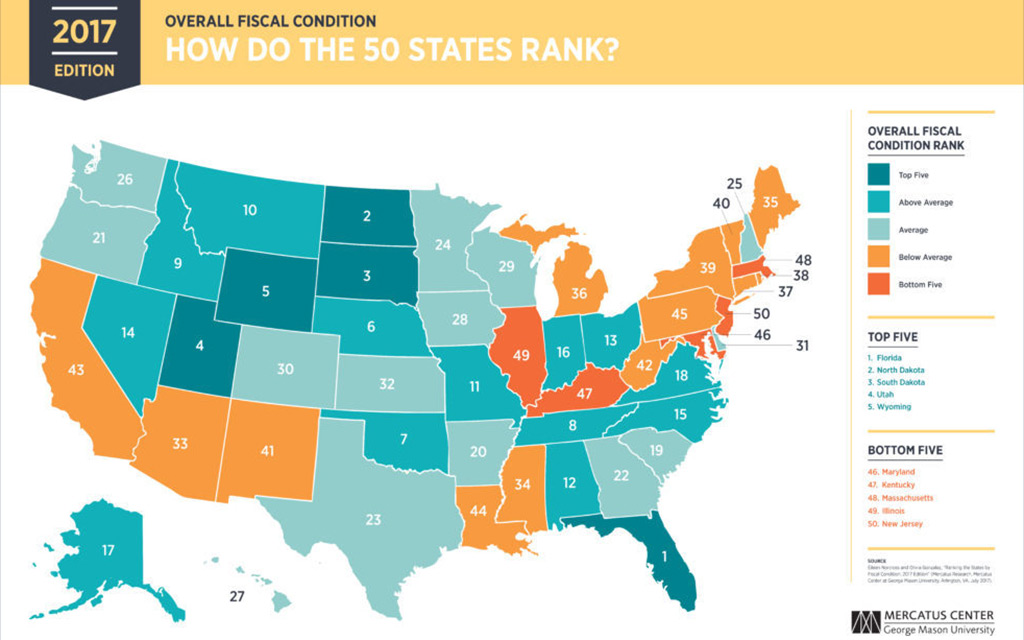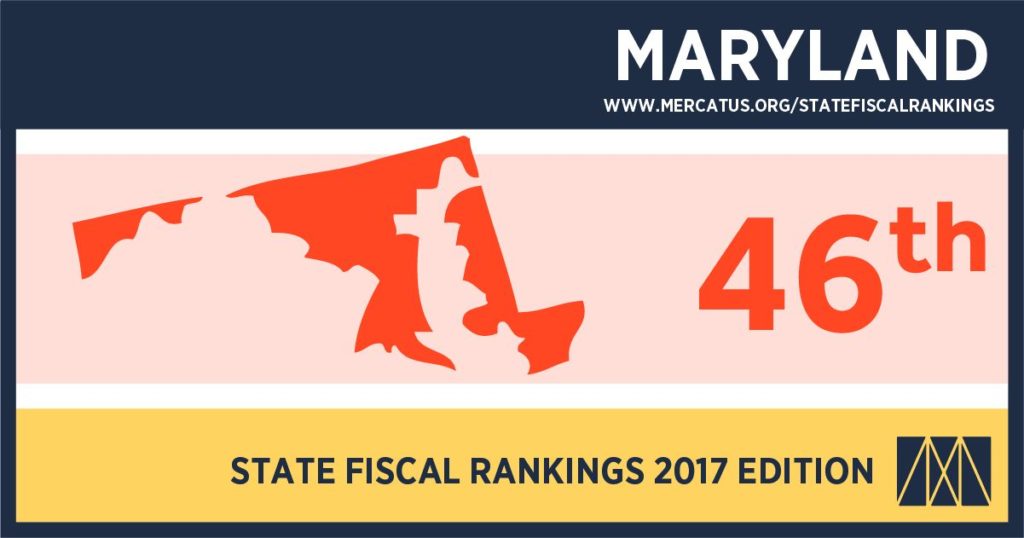Is Maryland Making Promises It Can’t Pay For?
Is Maryland Making Promises It Can’t Pay For?

Basic business principles suggest that organizations–including “the business of you”–run better when they exhibit fiscal discipline: maintaining revenues that exceed expenses and keeping debt levels low relative to income. For most of the last one hundred years, the Federal government hasn’t done this, since as a percentage of GDP revenues generally have outstripped spending.
What do we know about the fiscal health of states? As it turns out, not as much as we would probably like. In the past, getting a sense of a particular state’s fiscal outlook required consulting a dense annual financial report (CAFR). Also, states were not obligated by the federal government to fully report some kinds of debt such as pension liabilities.
Three years ago, Eileen Norcross and Olivia Gonzalez of the Mercatus Center at George Mason University simplified the process of examining the fiscal health of states. They develop metrics to ranks states using simplified indicators of fiscal health based on cash positions and solvency around short- and long-term debt and other key fiscal obligations, such as unfunded pensions and healthcare benefits.

Surprisingly, the 2017 study shows that Maryland is not particularly healthy, noting poor rankings due to yearly budget shortfalls, the amount of cash on hand to cover short-term bills and the probability that it will meet it’s existing long term spending commitments. Maryland, in fact, moved down the rankings from 2016.
Our state has one of the highest median household incomes in the US as well as more millionaires than any other state. And, it has a relatively high overall tax rate. Maryland, at least, should be in a position to take stock of its short- and long-term fiscal health and work to reverse these issues. As compared to other states, Maryland may be doing a better job reporting its actual fiscal situation. The authors note the importance of continuing to stress the importance of improved reporting for all states. Let’s hope Maryland gets out of the bottom of the pile in 2018.
Christina Elson is the Managing Director of the Ed Snider Center for Enterprise and Markets and she is on LinkedIn.
Christina Elson is the Managing Director of the Ed Snider Center for Enterprise and Markets. You can learn more about her on LinkedIn.




